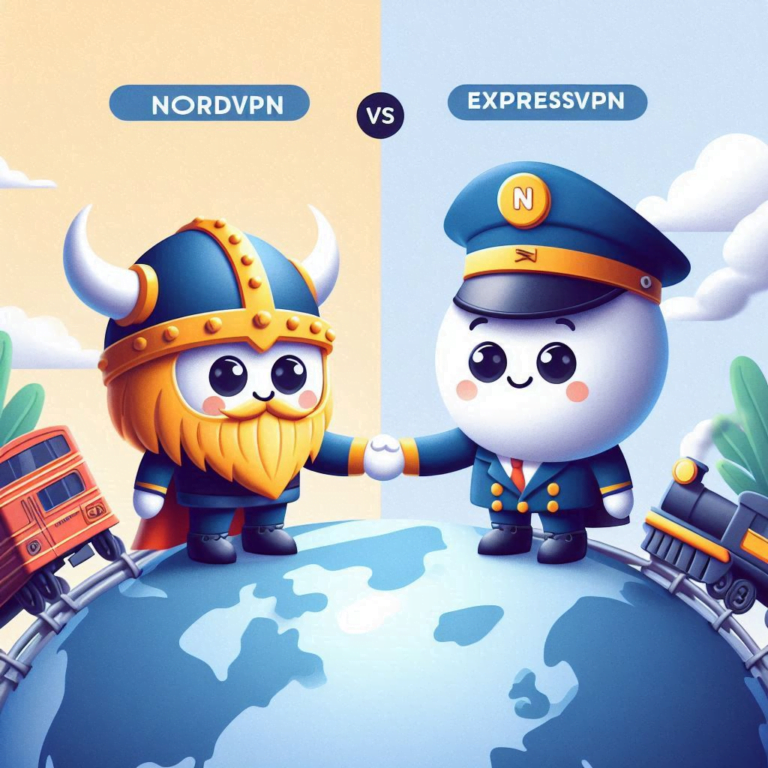What Programming Languages Can Be Used to Create a VPN?
Hi there today we are going to know What Programming Languages Can Be Used to Create a VPN? Creating a VPN involves a complex interplay of encryption, secure data transmission, and network management. One of the critical decisions in developing a VPN is choosing the right programming language.
This decision has an impact on the VPN service’s scalability, security, and performance. The advantages, frameworks, and libraries that make the most popular programming languages for VPN creation appropriate for this type of work are examined in this article.
Popular Programming Languages for VPN Development
C/C++

Advantages of C/C++ for VPN Development
Because of their strong control over system resources and great performance, C and C++ are highly recommended for system-level programming jobs like VPN construction. Low-level access to memory and hardware is provided by these languages, enabling precise performance optimizations.
This is essential for operations like data compression and encryption, which are essential to VPN operation. Furthermore, C and C++ are extremely efficient, so they can manage the demanding processing requirements of a VPN with little overhead.
Libraries and Frameworks in C/C++ for VPNs
VPN development is facilitated by a number of C/C++ libraries and frameworks. A popular library called OpenSSL offers strong support for the TLS and SSL protocols, which are necessary for encrypting VPN data. Another useful tool is libpcap, which has the ability to capture and analyze network packets.
This is especially helpful when creating VPN features that involve network monitoring and logging. Increase.Asynchronous I/O activities are supported by the robust C++ network programming framework Asio, which is essential for effectively managing several concurrent connections.
Python

Why Python is Preferred for VPN Development
Because of its ease of use and readability, Python is a preferred language among developers as it facilitates faster development. Its vast standard library and lively third-party package ecosystem enable VPN solutions to be quickly prototyped and built.
Because of its high level design, Python makes complicated tasks easier to handle, freeing up developers to concentrate more on the functionality rather than the minute details of implementation.
Key Python Libraries for VPN Creation
Numerous libraries available in Python are especially helpful for developing VPNs. A wide range of cryptographic functions are supported by PyCryptodome, including the different encryption techniques required to secure VPN connections. Another strong tool for manipulating packets is Scapy, which gives programmers the ability to efficiently create and examine network packets.
Asynchronous network programming is supported by the Twisted and Asyncio frameworks, which are necessary for managing the several simultaneous connections that a VPN has to handle. Python’s modules and frameworks make it a great option for creating VPNs.
Java

Benefits of Using Java for VPNs
Java is a great option for VPN development due to its solid security features and independence from other platforms. Java’s cross-platform portability and ability to operate on any device having a Java Virtual Machine (JVM) are two of its main features. Additionally, Java has an extensive ecosystem of libraries and frameworks that may be used to create VPNs, offering complete solutions for a range of networking and security needs.
Java Frameworks Suitable for VPN Development
Numerous useful frameworks for VPN creation are available in Java. Strong support is offered by the robust framework Spring Security for both encryption and authentication, which are essential elements of any VPN service.
Another strong framework that makes adding security measures to a Java-based application easier is Apache Shiro. These frameworks and Java’s built-in benefits make it a good choice for VPN development.
Go (Golang)
Go’s Strengths in VPN Development
The statically typed language Go, sometimes referred to as Golang, is made for effective concurrency and great efficiency. It works especially well for creating dependable and scalable VPN solutions. Because of its robust standard library and ease of use, Go is a sensible option for developing systems that must operate quickly, such as VPNs. Its integrated concurrent programming capabilities makes it simple to manage several connections at once.
Notable Go Libraries for VPNs
You may use a number of Go libraries to construct VPNs. The crypto package offers the fundamental cryptographic operations required to protect VPN communication. Strong networking features provided by the net and net/http packages make it possible to create effective communication protocols. The gopacket library also offers facilities for packet processing and analysis, which are essential for putting cutting-edge networking capabilities in a VPN.
Less Common but Effective Languages for VPN Development
Rust
Advantages of Rust in VPN Development
Because of its emphasis on performance and safety, Rust is becoming more and more popular for system-level programming. Rust is a safe option for VPN development because of its memory safety guarantees, which prevent typical programming problems like null pointer dereferencing and buffer overflows. Rust has safer memory management than C/C++, yet it performs similarly.
Libraries in Rust for VPNs
Numerous libraries that are helpful for VPN building are available in Rust. Asynchronous I/O operations are provided by the tokio library, which is necessary for effectively managing multiple connections. A variety of cryptographic operations are provided by the rust-crypto library, and serde makes data structure serialization and deserialization easier—both of which are essential for network connection. Because of these libraries, Rust is a good option for creating VPNs that are both safe and efficient.
Node.js
H3: Using Node.js for VPN Development
Because of its event-driven architecture and non-blocking I/O, Node.js is best suited for developing server-side applications, which are typically utilized in VPN services. Node.js enables quick development and deployment, and a wide range of libraries within the ecosystem can be used to create reliable VPN solutions.
Node.js Libraries and Tools for VPNs
VPN development is made easier by the various libraries and tools offered by Node.js. Built-in cryptographic functions are provided by the crypto module, and APIs for managing VPN connections can be created using express. Bidirectional, real-time communication is made possible via Socket.io, which is advantageous for VPN services.
Developing VPNs using Node.js is feasible because to these modules and technologies, especially for server-side components.
Swift
VPN Development in Swift for iOS
The preferred language for iOS programming is Swift. Swift offers a safe and effective programming environment along with smooth iOS feature integration for VPN services aimed at Apple devices. Swift is a compelling alternative for creating VPN applications for iOS due to its performance and contemporary syntax.
Swift Libraries and Resources
A number of libraries and resources are available in Swift to facilitate VPN creation. High-level cryptographic operations are provided by CryptoKit, and VPN configuration and control APIs are provided by NetworkExtension. With these features, Swift is a sensible option for creating VPN apps for iOS, guaranteeing a safe and seamless user experience.
Cross-Platform Considerations
Multi-language Support
It is frequently necessary to use different programming languages when creating a VPN that functions on several systems. For example, you could utilize C++ for the server-side components, Java for the Android client, and Swift for the iOS client. It is essential to make sure these parts keep up a constant performance level across platforms and communicate efficiently.
Multi-language development can be made easier by tools such as gRPC and Apache Thrift, which allow components built in different languages to communicate with each other seamlessly.
Performance and Security
When developing a VPN, security and performance are crucial. To secure user data, the selected language should include strong security features, low-latency communication, and effective data encryption and decryption. Performance-critical components of a VPN can benefit greatly from the performance and security of languages like C/C++, Go, and Rust.
Ease of Maintenance and Scalability
Additionally, the language ought to make scaling and straightforward maintenance possible. This entails having a robust ecosystem of frameworks and libraries, vibrant community support, and performance optimization and debugging tools. Because of their large libraries and vibrant communities, programming languages such as Python and Java are great for creating scalable and easily maintained VPN solutions.
Security Considerations in VPN Development
Importance of Secure Coding Practices
Secure coding techniques are crucial for VPN construction regardless of the programming language. This entails using the most recent libraries to prevent vulnerabilities, handling errors, and performing appropriate input validation. To find and reduce possible security vulnerabilities, regular code reviews and security audits are also essential.
Cryptography and Encryption Libraries
Encryption libraries and trustworthy cryptography are essential for protecting VPN communication. Well-proven cryptographic functions are provided by libraries like OpenSSL for C/C++, PyCryptodome for Python, and crypto for Node.js, which offer robust defense against a variety of cyberattacks. To include the most recent security updates and fixes, these libraries should be updated on a regular basis.
Open Source VPN Projects and Their Language Choices
OpenVPN
Language Used and Why
The primary language of OpenVPN is C. This decision was made because C has excellent performance and resource management, both of which are essential for VPN operations. C is also well-aligned with OpenVPN’s heavy use of the OpenSSL library for cryptography. This combination guarantees a VPN solution that is both effective and safe.
WireGuard
Language Used and Why
Go and C are used to write WireGuard. Go is used for the userspace tools because of its ease of use and simplicity in development, while C is utilized for the kernel module because of its benefits in terms of performance. Using a hybrid method, a safe and effective VPN solution is produced by utilizing the advantages of both languages.
Shadowsocks
Language Used and Why
Shadowsocks is implemented in Go and C, however it is mostly written in Python. Performance-critical components are developed in C and Go, whereas Python is the best choice for initial development because to its ease of use and rapid development capabilities. Performance and ease of development are balanced by this multilingual approach.
Conclusion on What Programming Languages Can Be Used to Create a VPN?
For VPN development, there are a number of considerations to make while selecting a programming language, such as ease of maintenance, cross-platform compatibility, security, and performance. Although the most often used languages are C/C++, Python, Java, and Go, other languages such as Rust, Node.js, and Swift also have special benefits. The ideal language for your VPN project will ultimately rely on the particular needs and development environment you have.
FAQs
What is the most secure programming language for VPN development?
While no language is inherently more secure than others, Rust is often praised for its safety features, which help eliminate common programming errors that can lead to vulnerabilities.
Can I use multiple programming languages to create a VPN?
Yes, using multiple languages can be beneficial for different components of a VPN. For example, you might use C for the core functionalities, Python for scripting, and Java for the user interface.
How important is performance in VPN software?
Performance is crucial in VPN software, as it directly affects the speed and reliability of the connection. High-performance languages like C and Go are often preferred for core VPN functionalities.
Are there any frameworks that support multi-language development for VPNs?
Frameworks like Apache Thrift and gRPC can facilitate multi-language development by allowing different components to communicate seamlessly, regardless of the programming languages used.
What are the biggest challenges in VPN development?
The biggest challenges in VPN development include ensuring strong security, maintaining high performance, and providing cross-platform compatibility. Additionally, managing network latency and handling large volumes of traffic can be complex tasks.
Loading newsletter form...







